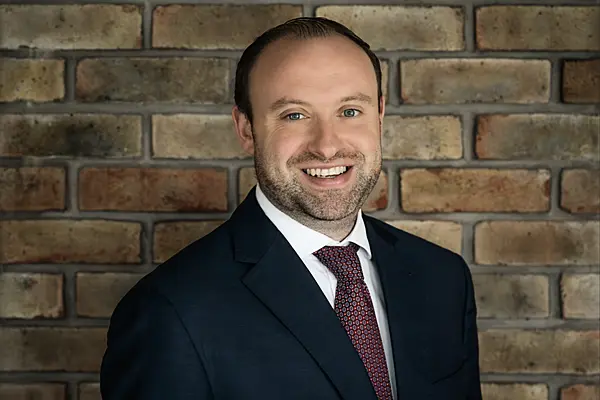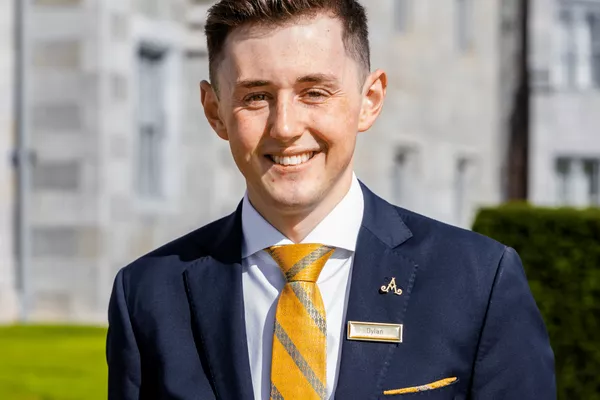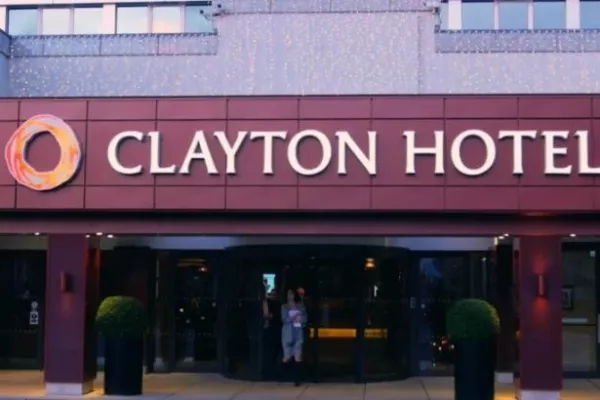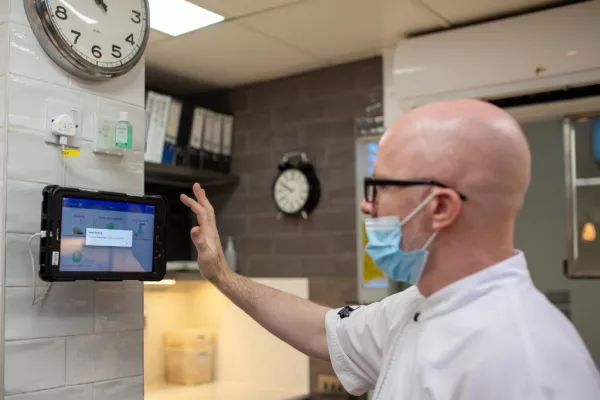As The Marker opens on Grand Canal Square, Emily Hourican examines the strength of the five-star market, and asks if it is too early to talk about recovery in room rates.
The welcome return to growth of the Irish hotel sector looks set to continue in the coming year, with predictions of a 5% increase in visitor numbers for 2013. A parallel return to growth in visitors from the US and Canada, along with increase in numbers from Russia and South America, means the five-star hotel market is potentially set to experience a noticable uplift.These luxury and first class hotels already showed a strong rebound in profit growth in 2011, and figures for 2012 are expected to tell a similar story. Occuancy rates for five-star hotels climbed to 59.80% in 2011, up from 54.50% in 2009, while RevPar went from €71.16 to €76.74. It's a far cry from RevPar of €118.56 and occupancy of 70.70% back in 2006, but is nonetheless evidence of good news. The downward spiral in room rates across the country was always going to favour the higher end of the market. They had farther to fall, and were therefore better able to offer perceived value. For many visitors, the appeal of a room in a five-star hotel at roughly €128 a night - the average for 2012 – was irresistible. Now, with more corporate and high net worth individuals choosing to visit Ireland, and a strong calendar of events that drives demand, these hotels should be in a position to capitalise. The Ritz-Carlton in Powerscourt, winner of the Overall Best Business Hotel award at last year's National Hospitality Award, has seen just such an increase: "The first quarter of 2013 has been the strongest since we opened in October 2007. There has been an increase in both corporate and leisure bookings and this Easter break was also the busiest for the hotel. Room rates are beginning to rise again," says public relations manager Sinead Cox. So are the good times here again for Ireland's luxury sector? And if so, what's driving this? Tourism Ireland has a specif strategy aimed at attracting high-spending visitors to the country. "Business tourism is a high yield sector," explains Sinead Grace, media and public relations manager, "given that visitors who travel to Ireland for business purposes spend approximately two-and-a-half times more than the average tourist." To capture this market, Tourism Ireland activity includes a number of high profile events, promotions and sales blitzes. "Association conferences, corporate meetings and incentive travel are the main focus. Our approach involves highlighting ease of access, the great facilities and good value rates available for meetings and conferences here and getting the island of Ireland known for excellence in business support. We also showcase the great experiences business tourism delegates can enjoy here on the sidelines of their conference or meeting, interacting with locals and savouring aspects of our unique culture and heritage. The superb meetings, incentive and transport infrastructure on offer here, coupled with our distinctive cultural experience, means the island of Ireland is now an even more viable and attractive destination for the business tourism market than ever before." And as for emerging markets, such as China, "Tourism Ireland is also active. One of the key target segments for Tourism Ireland in China is ‘luxury travellers’. There are an estimated 562,000 ‘high net worth’ individuals in China (i.e. people with investible assets worth more than $1 million). The growing disposable income amongst more and more Chinese consumers has boosted not only spending power but also confidence," says Sinead. In terms of delivery on the ground, almost 700,000 overseas holidaymakers to Ireland were managers or professionals in the years 2008-2011, according to Failte Ireland. Meaning 24% of the overseas holiday market. That breaks down to: Britain 36%, Mainland Europe 34% and North America 24% Private tour companies are telling the same story. "We're excellent at the luxury end of the market and always were," says Siobhan Byrne, owner and fouder of Adams and Butler, 'the agent's agent' of the tour business. "Compare what we do with the UK and Scotland. They understand the market, but don't get it as much as we do." Partly this is due to our natural sense of hospitality, and understanding of what's needed. "We can pick up the phone and dial a manger or an owner, if we have a celebrity or very wealthy client, and they will work with us to ensure that we get best possible for that client." Partly too it is our flexibility. "Wealthy Russians are far different customers to wealthy European or Americans," explains Siobhan. "We accomodate different markets very well. Everything Adams and Butler does is customised, we're very good at hand-holding, which means we are good at new and developping markets. If our clients don't speak English very well, for example, if they are not that confident about negotiating their way around, we tend to put them into smaller Blue Book properties, because these are more intimate, the owners can see if they need help finding that authentic experience." The recession, says Siobhan, didn't really affect their business. "When the world recession happened, hotels here reacted fast and lowered their prices. Ireland was perceived as offering good value. In fact, 50% of our clients began taking suites then." Currently, Siobhan says rooms in five-star properties across the country are entirely booked out in June. "The Gathering has had a big impact. High end tour operators abroad are putting together a bigger programme for Ireland, we now exceed Italy for some operators, for the first time ever." Is the available hotel stock living up to the promise, in terms of quality and content? "Yes, and we are starting to see many properties reinvesting," says Siobhan. "Sheen Falls changed hands recently and is undergoing reinvestment. The Merrion, Ashford Castle, Dromoland, Ballyfin, all are providing what these travellers want. And part of that is to feel special, you can't buy that feeling of being valued." The average Adams and Butler client spends €6-10,000 a week on accomodation and transport, not including meals and other spending. One of their best-selling recent tours, interestingly, was one organised around knitting and crochet. One knock-on effect of five-star hotels ability to maintain decent room rates during the first years of the recession has been the physical toll this has taken. Despite the undoubted benefit of keeping occupancy high, the downside for these hotels was considerable wear and tear. The decline in the corporate market, and corresponding rise in family and leisure markets, put pressure on the structure of the hotel, meaning that many are now in need of signifcant capital investment. "There was an increase of 3% in the numbers of visitors coming from Canada and the US last year," says Anne Walshe of Crowe Horwath. "These visitors tend to stay in five star properties, and pay the rates required. Bed nights were up 13% in 2012, but the US market was actually up 17% within that. This demand will start to allow hotels to yield better rates. We may never get back to the rates we saw in 2007, for example, but demand continues to grow." However, Anne agrees that investment is needed. "In the last 6-8 months, this has become a key focus of owners, operators and indeed banks. Banks are very focussed on this, because they want to protect the value of their investment. Also, Ireland has a very good reputation worldwide for the quality of our luxury hotel stock, because many of these hotels were newly-built. We need to protect that. Even at reduced room rates, people expect five-star quality. Hoteliers need to maintain their properties in order to drive the room rate up."
The truth of this can be seen quite simply by touring many luxury properties around the country. While the welcome is undiminished, many are starting to show a serious need for repainting, plastering, wallpapering, re-carpeting, new curtains and so on. Resort properties that include spas, golf and other leisure activities, perhaps more so than city-centre properties. If these hotels are to retain the edge they have acquired, and capitalise on the growth in demand, now is the time to invest.









